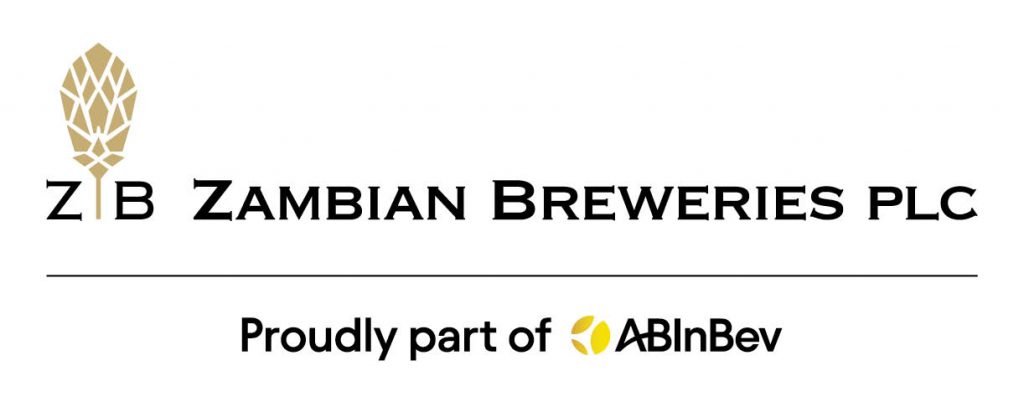
FOR IMMEDIATE RELEASE
WITH PICTURE
AUGUST 26, 2022
ESG – KEY FOR SUSTAINABILITY OF INDUSTRY AND PLANET

By Michelle Kilpin
LUSAKA, ZAMBIA – The ESG – Environmental, Social and Governance – agenda is key for the sustainability of businesses and the planet. A 2019 African Development Bank report identified Africa as the most vulnerable continent to climate change. With widespread changes in weather patterns causing uncertainty for many, what can businesses do to step up and do their part to avert this environmental crisis before it is too late?
Seeing the bigger picture
Sustainability as a business approach is primarily concerned with the creation of long-term value by considering how organisations handle issues of environmental, social and governance (ESG).
Research by Accenture on responsible leadership revealed that companies with high ratings for ESG performance enjoyed operating margins that were 3.7 times higher on average than those of lower ESG performers. Another report by First Insight suggests that 90% of younger consumers are willing to pay 10% and more for sustainable products, indicating that going green can be profitable for businesses.
It is this kind of thinking that is powering Zambian Breweries plc to fulfill its parent company AB InBev’s ethos of “creating a future with more cheers”. Indeed, to a future with more cheers of sustainability.
This vision requires us to look at our environmental impact and consequently integrate sustainable business practices, especially as manufacturers.
Investing in sustainability
We are overall pleased with the strides we are making towards a greener future. With the recent announcement of our US$80 million investment that is going towards the expansion of our Lusaka Mungwi Road brewing facility, our core focus with the upgrade is sustainability and efficiency.
We are committed to driving de-carbonisation and building climate resilience through our 2025 Sustainability Goals. We are proud to announce a new ambition to achieve net zero carbon emissions across our value chain by 2040.
As part of the upgrade, we expect to invest 90% of the proposed investment in high-tech equipment that will see the plant operate more sustainably. These upgrades include replacing the plant’s clean-in-place (CIP) equipment, installation of a more efficient boiler and new milling plant.
The installation of this equipment will see us phase out our old coal boilers in favour of more efficient and environmentally friendly alternatives, which will enable us overtime to eliminate carbon emissions.
Benefits of sustainability in business
Our ambition to lead and grow the clear beer sector is reinforced by our shared belief and intention to enable a sustainable and inclusive future. That is why we introduced our new global purpose: We dream big to create a future with more cheers. It is about adopting a larger sense of leadership to cultivate shared prosperity and long-term value creation. Investing in sustainability goes beyond taking climate action. It is imperative that businesses see beyond and endeavour to create a better world for the communities they operate in.
To us, a future with more cheers is shared prosperity: for our communities, for the planet and for our company. It is growth that is inclusive, value that is shared, and “wins” for the world that are truly worth celebrating.
To lead and grow our category and to help create a sustainable, equitable future for all, we have developed goals and programmes to build environmental resilience, reduce the harmful consumption of alcohol and promote inclusive growth and sustainable livelihoods across our value chain.
Zambian Breweries’ sustainability goals are focused around six main pillars: sustainable agriculture, water stewardship, smart drinking, entrepreneurship, climate change and circular packaging.
Each of these pillars aim to ensure we build a resilient and agile value chain by solidifying our role as a trusted partner in our local communities, whether that be empowering our farmers on our out-grower schemes with drought resistant seeds and access to ready market, or our strategic partnerships under Manja Pamodzi where we are encouraging businesses to be part of our recycling efforts to reduce the solid waste problem in our communities.
Opportunities
Our business value chain starts from agriculture and runs through to the retail sector. Each stage of the value chain, therefore, presents huge opportunities for promoting sustainability by the communities, government and business. It is for this reason that we refer to our value chain as ‘’Seed to Sip’’.
In our Smart Agriculture pillar, we are working closely with research institutions such as the Zambia Agriculture Research Institution (ZARI) to develop new seed varieties, for crops such as cassava and sorghum, which are resilient and can withstand changing climatic conditions such as drought.
On Water Stewardship, we continue to build new partnerships and strengthen existing ones in order to fully realise the opportunities in a sustainable manner. Conservation of both the Kafue and Zambezi basins remains a focus area in our partnership with WWF. Further, working with the Lusaka Water Supply and Sanitation Company (LWSC) and GIZ, we have partnered to provide safe, clean and good quality drinking water to over 80,000 households of George compound of Lusaka. Not to be forgotten is the retail sector, where the business is supporting more than 50,000 outlets in attaining meaningful livelihoods through the buying and selling of beverages.
Circular Packaging is another initiative through which the business is creating a future with more cheers of sustainability. According to the Extended Producer Responsibility (EPR) Regulations, businesses must endeavor to demonstrate their commitment to reducing the environmental impact of their products. And with most governments around the world prioritising policies that are aimed at safeguarding the environment, many manufacturers across various sectors of the economy are therefore urged to put sustainability practices at the core of their business to ensure their longevity.
Manja Pamodzi Foundation is a community-based initiative that supports a network of entrepreneurs in Lusaka who collect and sell post-consumer packaging waste in Lusaka to help improve the country’s solid waste management system.
I am pleased to see we have been joined by a number of new partners this year, including Java Foods, Yalelo Fisheries and BAT (Zambia), for which Manja Pamodzi is collecting recyclable waste from their factories.
More companies need to follow this lead and start taking responsibility for the future of our planet. Not only because it is the right thing to do, but also, because it is good for business. Remember, there is only one Earth. Cheers to driving ESG, as it key to creating sustainability for businesses and our planet.
Michelle Kilpin is Country Director of Zambian Breweries Plc.
-Ends-
About AB InBev in Zambia
Zambian Breweries Plc is part of Anheuser-Busch InBev (AB InBev), the largest brewer in the world, with more than 400 beer brands and some 200,000 employees in over 50 countries. It is also one of the world’s largest bottlers of soft drinks.
Zambian Breweries was established in Zambia in 1968 and its product range has grown to include clear beers such as Mosi Lager, Castle, Carling Black Label, Eagle beer, Stella Artois and Budweiser.
For media inquiries please contact
Gillian Langmead at Langmead & Baker Ltd
+260 979 060705
info@langmead.com
